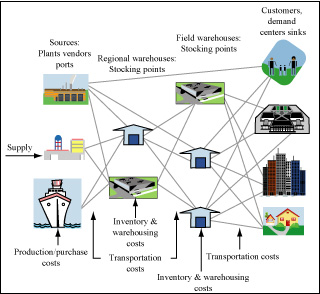Course Description
This course surveys operations research models and techniques developed for a variety of problems arising in logistical planning of multi-echelon systems. There is a focus on planning models for production/inventory/distribution strategies in general multi-echelon multi-item systems. Topics include vehicle routing …
This course surveys operations research models and techniques developed for a variety of problems arising in logistical planning of multi-echelon systems. There is a focus on planning models for production/inventory/distribution strategies in general multi-echelon multi-item systems. Topics include vehicle routing problems, dynamic lot sizing inventory models, stochastic and deterministic multi-echelon inventory systems, the bullwhip effect, pricing models, and integration problems arising in supply chain management. Probability and linear programming experience required.
Course Info
Learning Resource Types
notes
Lecture Notes
assignment
Problem Sets

This image illustrates the supply chain. Supply Chain Management is primarily concerned with the efficient integration of suppliers, factories, warehouses and stores so that merchandise is produced and distributed in the right quantities, to the right locations and at the right time, and so as to minimize total system cost subject to satisfying service requirements. (Image by MIT OpenCourseWare.)










